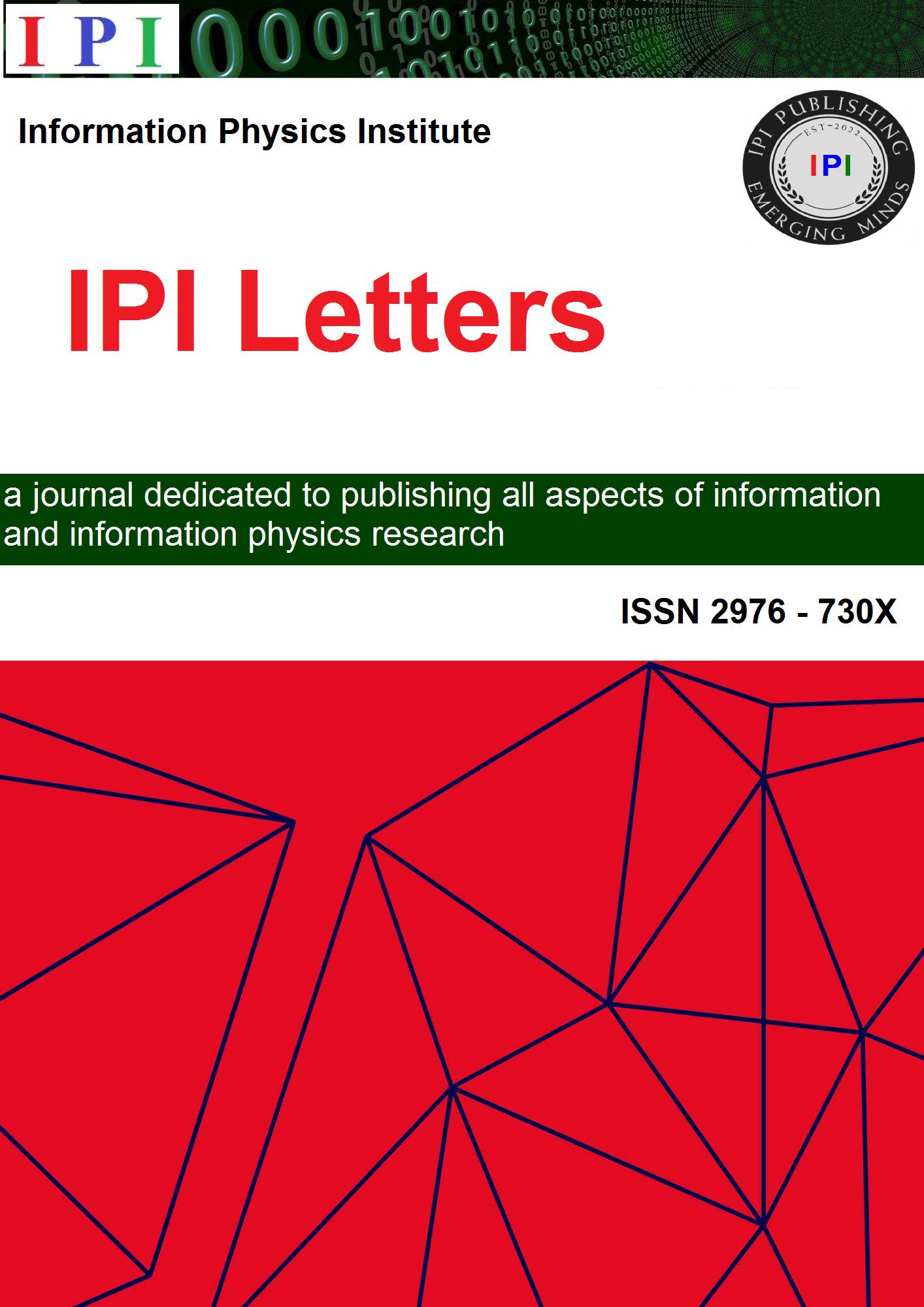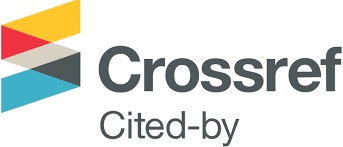Most Read Article Award 2025
Congratulations to Danny Goler, the Winner of the 2024-2025 Most Read Article Award of the IPI Letters.
When reporting on research that involves human subjects, human material, human tissues, or human data, authors must declare that the investigations were carried out following the rules of the Declaration of Helsinki of 1975 (https://www.wma.net/what-we-do/medical-ethics/declaration-of-helsinki/), revised in 2013. According to point 23 of this declaration, an approval from the local institutional review board (IRB) or other appropriate ethics committee must be obtained before undertaking the research to confirm the study meets national and international guidelines. As a minimum, a submission cover letter should contain a statement including the project identification code, date of approval, and name of the ethics committee or institutional review board must be stated in Section ‘Institutional Review Board Statement’ of the article.
For non-interventional studies (e.g. surveys, questionnaires, social media research), all participants must be fully informed if the anonymity is assured, why the research is being conducted, how their data will be used and if there are any risks associated. As with all research involving humans, ethical approval from an appropriate ethics committee must be obtained prior to conducting the study. If ethical approval is not required, authors must either provide an exemption from the ethics committee or are encouraged to cite the local or national legislation that indicates ethics approval is not required for this type of study. Where a study has been granted exemption, the name of the ethics committee which provided this should be stated in Section ‘Institutional Review Board Statement’ with a full explanation regarding why ethical approval was not required.
If the study reports research involving vulnerable groups, an additional check may be performed. The submitted manuscript will be scrutinized by the editorial office and upon request, documentary evidence (blank consent forms and any related discussion documents from the ethics board) must be supplied. Additionally, when studies describe groups by race, ethnicity, gender, disability, disease, etc., explanation regarding why such categorization was needed must be clearly stated in the article.
If national legislation requires it, studies involving vertebrates or higher invertebrates must only be carried out after obtaining approval from the appropriate ethics committee. As a minimum, the project identification code, date of approval and name of the ethics committee or institutional review board should be stated in Section ‘Institutional Review Board Statement’. Research procedures must be carried out in accordance with national and institutional regulations. Statements on animal welfare should confirm that the study complied with all relevant legislation. Clinical studies involving animals and interventions outside of routine care require ethics committee oversight as per the American Veterinary Medical Association. If the study involved client-owned animals, informed client consent must be obtained and certified in the manuscript report of the research. Owners must be fully informed if there are any risks associated with the procedures and that the research will be published. If available, a high standard of veterinary care must be provided. Authors are responsible for correctness of the statements provided in the manuscript.
If ethical approval is not required by national laws, authors must provide an exemption from the ethics committee, if one is available. Where a study has been granted exemption, the name of the ethics committee that provided this should be stated in Section ‘Institutional Review Board Statement’ with a full explanation on why the ethical approval was not required.
If no animal ethics committee is available to review applications, authors should be aware that the ethics of their research will be evaluated by reviewers and editors. Authors should provide a statement justifying the work from an ethical perspective, using the same utilitarian framework that is used by ethics committees. Authors may be asked to provide this even if they have received ethical approval.
Experimental research on plants (either cultivated or wild) including collection of plant material, must comply with institutional, national, or international guidelines. We recommend that authors comply with the Convention on Biological Diversity and the Convention on the Trade in Endangered Species of Wild Fauna and Flora.
For each submitted manuscript supporting genetic information and origin must be provided.
Editors reserve the rights to reject any submission that does not meet these requirements.
IPI Letters fully adhere to the principles of the Committee on Publication Ethics (COPE), and its Code of Conduct and to its Best Practice Guidelines.
The editors of this journal enforce a rigorous peer-review process together with strict ethical policies and standards to ensure to add high quality scientific works to the field of scholarly publication. Unfortunately, cases of plagiarism, data falsification, image manipulation, inappropriate authorship credit, and the like, do arise. The editors of IPI Letters take such publishing ethics issues very seriously and are trained to proceed in such cases with a zero tolerance policy.
Authors wishing to publish their papers in IPI Letters must abide to the following:
Plagiarism includes copying text, ideas, images, or data from another source, even from your own publications, without giving any credit to the original source.
Reuse of text that is copied from another source must be between quotes and the original source must be cited. If a study's design or the manuscript's structure or language has been inspired by previous works, these works must be explicitly cited.
If plagiarism is detected during the peer review process, the manuscript may be rejected. If plagiarism is detected after publication, an investigation will take place and action taken in accordance with our policies.
Articles that have been identified as being potentially generated by AI machines, will be rejected unless this is clearly acknowledged in the article and the article is less than 50% AI generated.
Irregular manipulation includes: 1) introduction, enhancement, moving, or removing features from the original image; 2) grouping of images that should obviously be presented separately (e.g., from different parts of the same gel, or from different gels); or 3) modifying the contrast, brightness or color balance to obscure, eliminate or enhance some information.
If irregular image manipulation is identified and confirmed during the peer review process, we may reject the manuscript. If irregular image manipulation is identified and confirmed after publication, we may correct or retract the paper.
If evidence of misconduct is found, appropriate action will be taken to correct or retract the publication. Authors are expected to comply with the best ethical publication practices when publishing with IPI Publishing.
Authors should ensure that where material is taken from other sources (including their own published writing) the source is clearly cited and that where appropriate permission is obtained.
Authors should not engage in excessive self-citation of their own work.
Authors should not copy references from other publications if they have not read the cited work.
Authors should not preferentially cite their own or their friends’, peers’, or institution’s publications.
Authors should not cite advertisements or advertorial material.
ISSN 2976 - 730X



Congratulations to Danny Goler, the Winner of the 2024-2025 Most Read Article Award of the IPI Letters.

 |
 |
 |
 |
 |
The journal is licensed under a Attribution International (CC BY).
Copyright © IPI Publishing - Information Physics Institute
This site uses cookies. By continuing to use this site you agree to our use of cookies.
The content published in IPI Letters is provided for informational purposes only and reflects the research and opinions of the respective authors. While the editorial board of IPI Letters undertakes efforts to evaluate submissions for quality and scientific merit, the authors bear full responsibility for the accuracy, integrity, and originality of their work. The journal, its editorial board, and its legal owner disclaim all liability for any inaccuracies, omissions, or errors in the published content.
